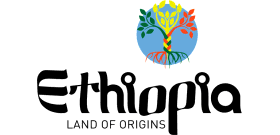 Ethiopia Showcases Biodiversity and Heritage Commitments at Global Wildlife Program Summit
Ethiopia Showcases Biodiversity and Heritage Commitments at Global Wildlife Program Summit
The spotlight shone on Ethiopia this week as the country played host to the 25th annual conference of the Global Wildlife Program (GWP), reaffirming its commitment to biodiversity conservation, the preservation of cultural heritage, and the advancement of sustainable livelihoods. The event, opened by State Minister of Tourism Sileshi Girma, brought together a broad spectrum of stakeholders and highlighted Ethiopia’s role as both a continental leader in conservation and a unique travel destination for Africa’s dynamic tourism sector.
Minister Sileshi Girma underscored Ethiopia’s extraordinary natural and cultural wealth, describing it as a land of “profound heritage and ecological wonder.” From the ancient civilizations that shaped the Horn of Africa to the invention of its own distinctive script, Ethiopia’s legacy is rooted in a tapestry of diverse languages and traditions. The country is celebrated as the Land of Origins—widely regarded as the cradle of humankind, the birthplace of coffee, and the source of the mighty Abbay River (Blue Nile). With its claim to “13 months of sunshine” and landscapes that span soaring highlands and dramatic lowlands, Ethiopia stands out as a repository of both geographic and cultural marvels.
At the heart of Ethiopia’s current development agenda is a focus on nature-based tourism, infrastructure upgrades, and the Green Legacy Initiative. These forward-looking investments are forging a new path toward ecological sustainability and inclusive social progress. According to Sileshi, protected areas are being transformed into engines of both conservation and community empowerment—an approach that resonates strongly with Africa’s travel sector, where the intersection of tourism and local livelihoods is increasingly central to business strategies.
Ethiopia’s full membership in the GWP, alongside 37 other countries, has enabled the country to accelerate its efforts in safeguarding biodiversity. Minister Sileshi reaffirmed Ethiopia’s unwavering commitment to advancing conservation, cultural preservation, and the creation of resilient livelihoods, positioning the country as a model for integrated, sustainable development within Africa.
Recent milestones illustrate Ethiopia’s resolve. The full-scale operation of the Grand Ethiopian Renaissance Dam (GERD), ambitious riverside and corridor development projects, and the expansion of protected areas all demonstrate a holistic approach to balancing economic progress with environmental stewardship. These initiatives not only secure the future of Ethiopia’s natural resources but also create fresh opportunities for eco-tourism, adventure, and cultural exploration—a message that resonates strongly with African travel professionals seeking to diversify their offerings and respond to evolving traveler expectations.
Fanuel Kebede, Senior Researcher at the Ethiopian Wildlife Authority, provided further insight into the nation’s remarkable diversity. Ethiopia’s topography is among the most varied on the continent, with highlands soaring above 4,000 meters and arid lowlands plunging up to 150 meters below sea level. This dramatic range supports one of Africa’s most diversified ecological systems, creating a patchwork of habitats for wildlife and a living laboratory for conservation innovation.
Kebede emphasized that Ethiopia’s wildlife conservation efforts are closely tied to the country’s green legacy initiatives, particularly in and around protected areas. By promoting nature-based tourism and positioning it as a pillar of sustainable development, Ethiopia is demonstrating how environmental protection can go hand-in-hand with economic opportunity. This strategy not only safeguards critical ecosystems but also empowers local communities, creates jobs, and enhances the nation’s global image as a leading destination for responsible, impactful tourism.
The GWP annual conference itself is designed to foster knowledge exchange, encourage collaboration and networking between project teams, government officials, and private sector partners, and showcase best practices and lessons learned across the continent. For African travel professionals, the event presents a valuable forum for identifying new trends, connecting with conservation leaders, and exploring innovative ways to market destinations that combine wildlife, culture, and sustainability.
Looking ahead, Ethiopia’s ongoing commitment to integrated conservation and tourism signals a wealth of opportunities for Africa’s travel industry. As the demand for authentic, eco-conscious experiences grows among both domestic and international travelers, destinations that prioritize biodiversity and community well-being will be best positioned to capture new markets. For travel professionals, Ethiopia’s evolving story offers fresh inspiration for developing itineraries that celebrate heritage, champion wildlife, and support resilient futures for people and nature alike.
As Africa’s tourism sector continues to adapt and innovate, Ethiopia’s example at the GWP summit stands as a beacon—demonstrating how a country can honor its past, invest in its environment, and lay the groundwork for sustainable growth that benefits all stakeholders, from local communities to global explorers.
